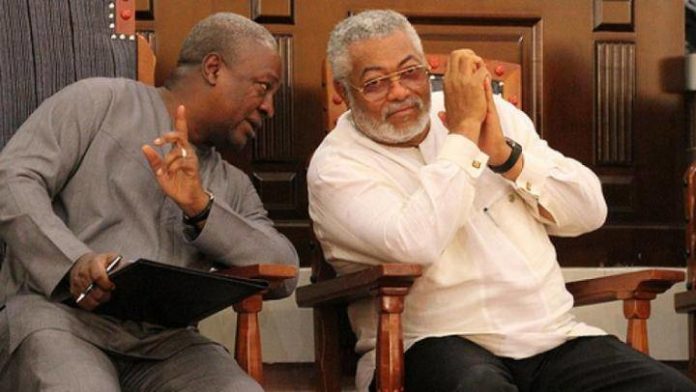Managing Editor of the Insight Newspaper, Kwesi Pratt Jnr says poor economic management by the regimes of former President Jerry John Rawlings left the Ghanaian economy in a precarious state by the year 2000.
Sharing his views on the legacy of the former president following his funeral, the veteran journalist said an economic program of the International Monetary Fund (IMF) embarked upon by the Rawlings’ military regime depleted the economy of Ghana and brought untold hardship on the people of the country as result of the program’s unfavorable conditions.
He recalled that the program which was meant for the development of the economy rather led to mass job losses in the public and civil services as well as the withdrawal of subsidies on all social services. He added that the economic hardship as result of the program was so unbearable that the regime sought to mitigate the situation with another policy which only worsened the sufferings of the people.
By the year 2000 when Mr. Rawlings was leaving office, Mr. Pratt claimed, inflation rate, which until recently was below 10 percent, was hovering around 45 percent with astronomical increase in money supply and the collapse of over 300 state-owned enterprises which made the economic state of the country more dire.
“In 1993, he accepted the World Bank/IMF prescription for national economic development as they would say but as some would see it for total economic decay. What he did he do? He accepted the program which involved mass entrenchment of labor in the public and civil service as a result in a period of one year, 300,000 workers lost their jobs in the public service and civil service. The hardship it imposed on the Ghanaian people was so unbearable that by the end of the year, they came up with what they called the program of action to mitigate the social consequences of adjustment in order to cushion the Ghanaian people from the havoc that been imposed on them. Subsidies on all social services were withdrawn including health and education.
Under him, more than 300 state enterprises were totally destroyed. It is significant to note that by 2000 when he was exiting office, inflation was hovering around 45%. That was the rate of inflation. Money supply had gone up by 50% and you know what that meant in economic terms,” he stated.
The critics of the Rawlings’ regime blamed the economic woes of the country in the early 2000s on mismanagement by the regime of the former military leader.
Mr. Rawlings’ successor, former president John Agyekum Kufuor, in an interview on Accra-based Asaase Radio in September last year, detailed the difficulties he and his government had to endure because of the poor state of the economy bequeathed to him by his predecessor.
He said not only was his administration forced to resort to the IMF for economic bailout but it had to pay a fine of US$36 million imposed on the country by the IMF as result of misreporting of economic figures by the Rawlings’ regime.
“The multilaterals, the IMF, they told us the previous regime had misreported to them about the state of the economy and Ghana was fined $36 million. They said unless we settled that fine they won’t trade with us,” the second president of the Fourth Republic stated in September last year.




